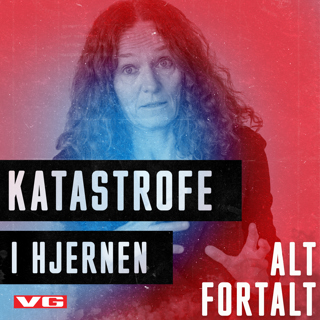
176. Minouche Shafik — What We Owe Each Other: A New Social Contract for a Better Society
Michael Shermer speaks with Nemat Talaat Shafik, Baroness Shafik DBE, known as Minouche Shafik, one of the leading policy experts of our time, about a new and better social contract that recognizes our interdependencies, supports and invests more in each other, and expects more of individuals in return: a rethinking of how we can better support each other to thrive. Shafik avers that no only can every country provide its citizens with the basics to have a decent life and be able to contribute to society, but that we owe each other more than this. A more generous and inclusive society would also share more risks collectively and ask everyone to contribute for as long as they can so that everyone can fulfill their potential. Shafik is an Egyptian-born British-American economist who served as the Deputy Governor of the Bank of England from August 2014 to February 2017 and has served as the Director of the London School of Economics since September 2017. She served as the Permanent Secretary of the Department for International Development from March 2008 to March 2011, when she went on to serve as the Deputy Managing Director of the IMF — International Monetary Fund.
27 Apr 20211h 40min

175. Brian Keating — How it All Began: Cosmic Inflation, the Multiverse, and the Nature of Scientific Proof
In this episode, based on the cover story from Skeptic magazine 26.1 (2021), Michael speaks with University of California professor of physics Brian Keating about: time, infinity, the shape of the universe, the multiverse, quantum gravity, string theory, the laws of nature, and more… Listen to this fascinating episode for free and order a copy of the Skeptic magazine 26.1 to read Keating's cover story, complete with splendid graphics, charts, and illustrations (in print or digital formats).
24 Apr 20211h 48min

174. Jordan Peterson — Beyond Order: 12 More Rules for Life
Join Michael Shermer and Jordan Peterson (bestselling author of 12 Rules for Life) for this extraordinary conversation based on Peterson's new book Beyond Order. After working for decades as a clinical psychologist and a professor at Harvard and the University of Toronto, Peterson has become one of the world's most influential public intellectuals. His YouTube videos and podcasts have gathered a worldwide audience of hundreds of millions, and his global book tour reached more than 250,000 people in major cities across the globe. What is it that gives Peterson's message such mass appeal?
20 Apr 20212h 49min

173. Naomi Oreskes — Why Trust Science?
In this interview, based on her landmark book, Why Trust Science?, historian of science Naomi Oreskes offers a bold and compelling defense of science, revealing why the social character of scientific knowledge is its greatest strength — and the greatest reason we can trust it. Drawing vital lessons from cases where scientists got it wrong, Oreskes shows how consensus is a crucial indicator of when a scientific matter has been settled, and when the knowledge produced is likely to be trustworthy.
17 Apr 20211h 45min

172. Andrew Doyle — Free Speech: And Why it Matters
Political Correctness has formed the basis for a new intolerant mindset, actively policing speech that is deemed offensive or controversial. Rather than confront bad ideas through discussion, it has now become common to intimidate one's detractors into silence. Taking on board legitimate concerns about how speech can be harmful, Andrew Doyle argues that the alternative — an authoritarian world in which our freedoms are surrendered to those in power — has far worse consequences.
13 Apr 20212h 15min

171. John Mueller — The Stupidity of War: American Foreign Policy and the Case for Complacency
In this conversation based on his new book, The Stupidity of War, political scientist John Mueller argues that American foreign policy since 1945 has been one long miscue; most international threats — including during the Cold War — have been substantially exaggerated. The result has been agony and bloviation, unnecessary and costly military interventions that have mostly failed. With international war in decline, complacency and appeasement become viable diplomatic devices and a large military is scarcely required.
10 Apr 20211h 49min

170. Michio Kaku — The God Equation: The Quest for a Theory of Everything
Synthesizing relativity and quantum theory would be the crowning achievement of science, a profound merging of all the forces of nature into one beautiful, magnificent equation to unlock the deepest mysteries in science. In this episode, Michael Shermer speaks with professor of theoretical physics Michio Kaku about: the Big Bang, black holes, worm holes, the multiverse, time travel, dark energy and dark matter, gravity, string theory, ETIs, meaning, and God.
6 Apr 20211h 36min

169. Jeff Hawkins — A Thousand Brains: A New Theory of Intelligence
Michael Shermer speaks with Jeff Hawkins, cofounder of Numenta: a neuroscience research company, about his new book A Thousand Brains: A New Theory of Intelligence in which Hawkins explains how simple cells in the brain create intelligence by using maplike structures to build hundreds of thousands of models of everything we know. Listen to this in-depth dialogue about the discoveries that allow Hawkins to answer important questions about how we perceive the world, why we have a sense of self, and the origin of high-level thought.
3 Apr 20211h 47min




















